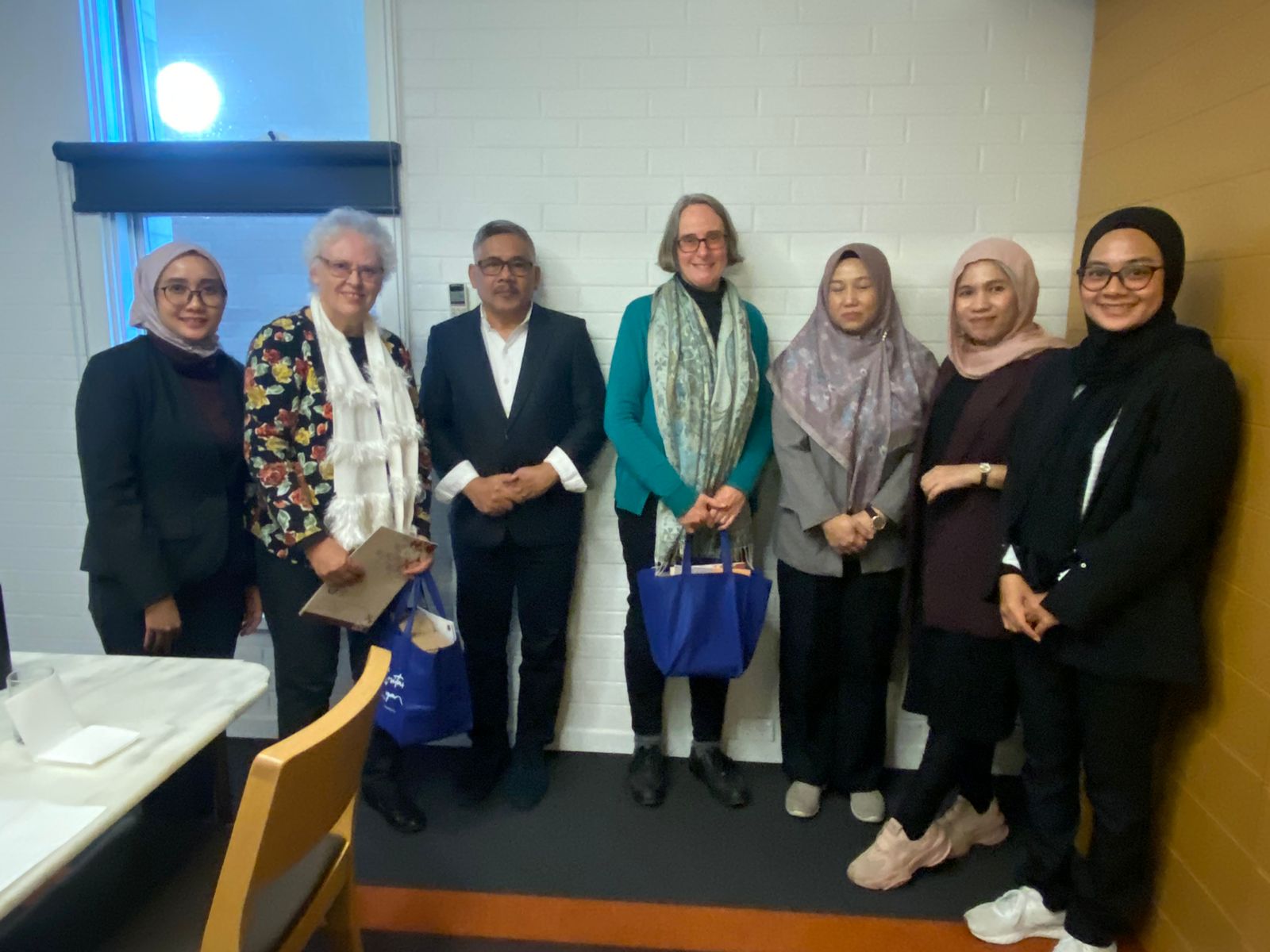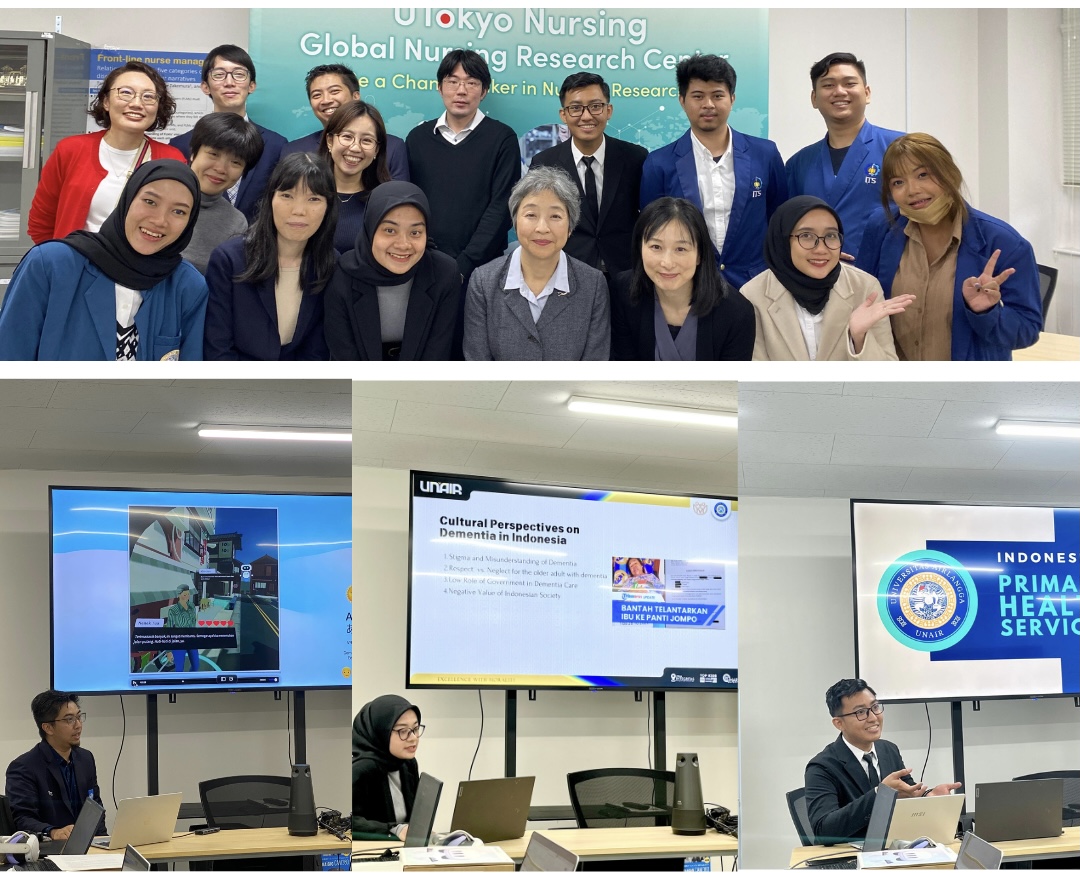
DACRC Visits La Trobe University Australia: Benchmarking and Initiating Research Collaboration
July 30, 2024
Lecturers from Universitas Airlangga (UNAIR) and Institut Teknologi Sepuluh Nopember (ITS) Indonesia recently participated in a seminar organized by the Global Nursing Research Center (GNRC) at the University of Tokyo. The seminar took place on November 21, 2024, from 13:30 to 15:30 (JFT), and was attended by academics from the Department of Gerontological Home Care and Long-term Care Nursing/Palliative Care Nursing.
The first presentation was delivered by Hadziq Fabroyir, Assistant Professor, Graphics, Interaction, and Games Laboratory (GIGa Lab), Department of Informatics, Institut Teknologi Sepuluh Nopember (ITS). He presented on “Enhancing Interactive Learning through Extended Reality: Insights from ITS and Beyond.” In this session, Hadziq discussed the potential of using extended reality (XR) technology in education, particularly in enhancing interactive learning in the digital age. He explained how ITS has developed XR applications to support engineering and medical education, as well as the benefits of this technology in providing a more immersive and realistic learning experience. “XR offers the opportunity to create more immersive and practical learning environments, which can help students understand complex concepts in a more interactive and engaging way,” Hadziq explained in his presentation. He also emphasized the importance of further developing XR technology to expand access to education worldwide, including in developing countries like Indonesia.
The second presenter, Aziz Nashiruddin Habibie, Project Assistant Professor, Dementia and Aging Care Research Center, Faculty of Nursing, Universitas Airlangga, delivered a presentation on “The Healthcare System in Indonesia: Integration of Primary Healthcare Services”. Aziz discussed the challenges faced by Indonesia’s healthcare system, particularly in terms of integrating primary healthcare services across the country. He explained the importance of integrated healthcare services to ensure equitable access for all segments of society, including those in remote areas. “Integrating primary healthcare services is key to improving the quality of healthcare in Indonesia, reducing health disparities, and enhancing the well-being of the population,” Aziz said. He also highlighted how policy reforms in Indonesia are currently focused on strengthening community health centers (puskesmas) and community-based healthcare services.
The third presenter, Nur Arifah Astri, Lecturer in Medical Surgical Nursing at the Dementia and Aging Care Research Center, Faculty of Nursing, Universitas Airlangga, presented on “Enhancing Quality of Life for Older Adults with Dementia: Epidemiological Approach and the Role of Family.” In this session, Nur Arifah emphasized the importance of family involvement in caring for older adults with dementia, as well as how an epidemiological approach can be used to understand the prevalence and social impact of dementia in Indonesia. “Dementia is a major challenge for Indonesia’s healthcare system, given its increasing prevalence as the population ages. Therefore, it is crucial to involve families in the care and monitoring of dementia patients,” said Nur Arifah. She also discussed several health programs aimed at improving the quality of life for older adults with dementia, including community-based approaches and family support.
All participants were highly enthusiastic about the seminar, as evidenced by the interactive discussions between the participants and the presenters. The seminar, organized by the Global Nursing Research Center (GNRC) at the University of Tokyo, also provided a platform for participants to discuss the latest developments in global research, particularly related to public health, educational technology, and healthcare services. The discussions emphasized the importance of international collaboration in addressing global challenges in the fields of health and education.




